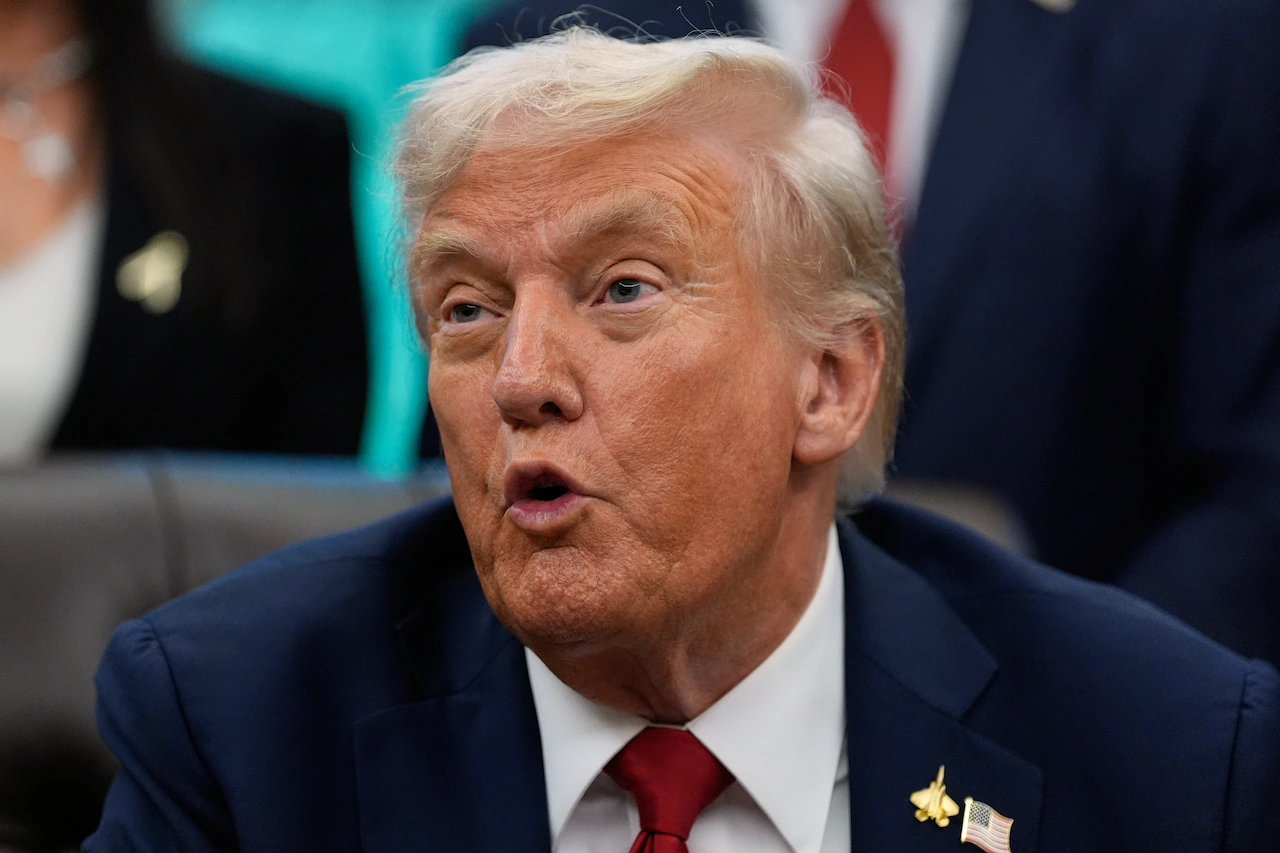
If there’s one thing that’s clear in a new Massachusetts Fiscal Alliance Foundation poll that dropped earlier this week, it’s that, nearly nine months into Trump 2.0, Bay State voters have a lot on their minds.
And why not? It’s not like there isn’t anything going on at the moment.
This week, the federal government went careening into a shutdown that could well result in layoffs for tens of thousands of federal workers and impact the health care of milions of people; grocery prices have continued to rise with little relief in sight and Americans are looking for someone to blame.
Spoiler alert (and pay attention, Republicans): Most are looking at President Donald Trump and his GOP allies on Capitol Hill, which is as clear a warning shot for the 2026 midterms as you’re going to get.
So what does that mean in Massachusetts, which ranks in the top half of states for its tax burden, and boasts the second-highest cost of living in these United States?
In short: Republican, Democrat or unenrolled, they’re looking for a break.
Nearly two-thirds (62%) of all respondents to the poll of 750 likely voters said they’d support trimming the state income tax from the current 5% to 4%.
The state also slaps people who earn $1 million or more with an additional 4% levy. The “Millionaire’s Tax,” as it’s widely known, pays for billions of dollars in spending on education- and transportation-related programs.
Forty-six percent of the poll’s 238 Democratic respondents also said they’d support a 1% cut to the income tax levy, as do 84% of the poll’s 97 self-identified Republicans and 68% of its 375 self-identified unenrolled voters.
Public support also remains high for bringing back tax rebate checks, which last landed in residents’ mailboxes in 2022 under Republican Gov. Charlie Baker.
That rebate, under a law known as Chapter 62F, meant less for the Legislature to spend, but it also meant more cash in people’s pockets as the state continued to emerge from the COVID-19 pandemic.
Nearly six in 10 of all respondents (59.6%) said they supported bringing back the rebate checks, compared to 22% who were opposed, and nearly 18% who were undecided.
That support cut across party lines, with 47% of Democrats, 78% of Republicans, and 63% of unenrolled voters saying they’d support updating the law so that the checks flowed more frequently.
The one thing they don’t want? The return of rent control, which supporters are looking to put on the November 2026 statewide ballot.
Even with sky-high rents and the end of pricey brokers’ fees, 52% of all respondents said they opposed it, compared to 31% who were onside. Sixteen percent said they were undecided.
Democratic respondents backed rent control 42%-38%, with nearly 19% undecided. Republicans opposed by nearly 62%-29%, with just 9% undecided. Unenrolled voters opposed it 60%-23%, with 16% undecided.
And while Democrats control, well, everything, from the governor’s office and Legislature to the elected row offices, Bay State voters are mostly fine with the current management.
Half of all respondents said they either strongly or somewhat approved of Democratic Gov. Maura Healey’s job performance, compared to the 40% who disapproved.
Just 8.5% said they were unsure as the Arlington pol heads into the thick of her 2026 reelection campaign, with three Republicans gunning for her job.
Speaking of which, Healey beats two of her three declared GOP challengers in hypothetical head-to-heads. Both are former Baker administration senior officials.
Healey led Baker’s former housing czar, Mike Kennealy, 44%-34% among all respondents. She similarly led Brian Shortsleeve, Baker’s former MBTA boss, 46%-31%, according to the poll.
In both instances, however, not quite a quarter of all voters were still undecided, according to the poll.
If there’s a warning for Healey, it’s among the unenrolled voters who make up the largest share of both the poll’s sample and the state’s electorate.
Shortsleeve led Healey 40%-35% among unenrolled voters, which was just outside the poll’s 3.6% margin of error.
Kennealy, meanwhile, led Healey 43%-33% among those same voters.
Nearly a quarter of those voters remained undecided with 13 months to go before Election Day, confirming that most anything can, and likely will, change between now and then.
One more variable: The poll, which was conducted from Sept. 23 to Sept. 24, did not sample voter opinion on businessman and Trump loyalist Michael Minogue, who jumped into the GOP nominating race on Wednesday.
The poll also found voters in a restive mood in the 2026 race for U.S. Senate, with U.S. Rep. Seth Moulton, D-6th District, leading U.S. Sen. Ed Markey in a hypothetical head-to-head match-up.
Moulton is still reportedly mulling a bid. A formal announcement could come as soon as this month.
Read More: Sign of things to come? Mass. Rep. Moulton leads Sen. Ed Markey in new poll
One more thought about the midterms, which are traditionally bad for the party that’s in power.
Trump’s approvals are in the basement in a state that Kamala Harris carried in 2024, and in which the Republican president has conducted a protracted siege, with immigration raids, attacks on federal funding and an all-out war on Harvard University as its hallmarks.
Fifty-six percent of all respondents strongly or somewhat disapproved of Trump’s job performance, compared to 41% who said they approved of his management after just about nine months on the job.
As one might expect, almost no one was undecided, with just 4.6% saying they were unsure.
Democrats and Republicans answered the way you’d think, with 76% of Democrats disapproving of Trump, compared to 83.5% of Republicans who approved.
The number to watch here is among unenrolled voters, who broke for Harris in 2024 nationally.
In Massachusetts, it’s a statistical dead heat, with 48% of Bay State independents saying they approved of Trump in the new poll, compared to nearly 47% who said they disapproved.
No one was on the fence among independents, with just 4.8% saying they were unsure, according to the poll.
So what’s that going to mean on Election Day?
It’s entirely too soon to tell. But it does point the way toward an election season that could be determinative on any number of levels.



